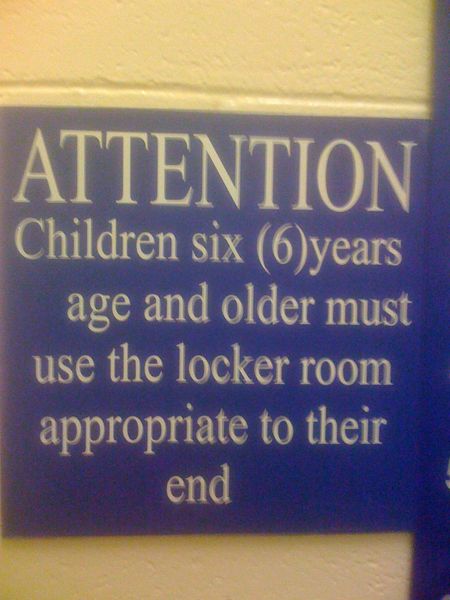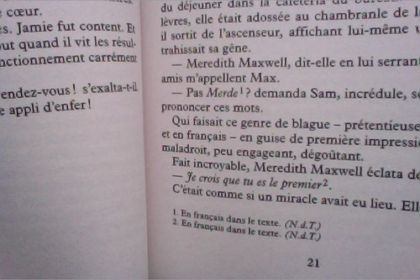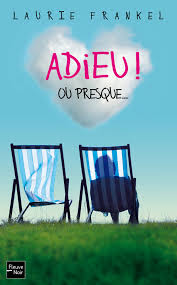|
As I have discussed -- here? elsewhere? mostly in my own brain? -- the beginning stages of novel-writing look a lot like wandering around the house aimlessly. Followed by writing. Followed by revision. Followed, only then, by obsessing about language. Novel-writing is long -- for me, in the early stages, language-matters are indulgences that interfere with the work that must be done: research, writing, revision, and wandering around the house. But that obsession with language is hard to let go of. During early-stage novel writing, it comes out in other ways. Example from some crackers I was eating this weekend: "Natural Flavor with other natural flavor." Natural flavor with other natural flavor? Look, I hate to be a graduate student about this, but: a) Can I get an S? Natural flavorS with other natural flavorS. b) Or articles? A natural flavor with another natural flavor might also work. c) What does this even mean? Are we talking about flavor or ingredients? Flavor means taste. Is their point that these crackers taste like two things? Crackers and sweet onions? Sweet potatoes (their main ingredient which is why I bought them. I am a sucker for sweet potatoes) and rice? Salt and crunchy? Bananas and bologna? Flavor and flavor? d) Or do they mean ingredients? Because flavor does not mean ingredients. But that does seem to be what's implied here. I chose these, in fact, because their ingredient list was short, recognizable, and non-chemical. These crackers contained actual foods on their ingredient list, foods such as sweet potatoes and rice. But then you'd think the copy might read: Sweet potatoes with rice. Instead of natural flavor with other natural flavor. e) Flavor means taste. All flavors are natural. Their cause might well be artificial, but their taste on the tongue is natural. And natural. f) There are only two reasons makers of crackers put copy on their boxes: to make me buy them or to make sure I don't sue them for having done so. I honestly can't imagine which this is. And then check this out: This sign is in the women's locker room where my kid takes swim lessons. I can only assume this is vandalism, a joke, but if so it's awfully well done -- I couldn't see any scratched out or scraped off letters. It is, in any case, someone's intention, be it the makers and hangers of the sign or someone with a pretty good sense of humor. So I ask you:
a) Is the final word here meant to be gender? Because at the very least they probably mean sex. Unless b) they mean gender in which case bravo and more power to 'em though I'm not sure that requires signage at that point. Maybe this is too long: "Children six years [of??] age and older must use the locker room which best aligns with their gender performance always acknowledging that that performance is culturally imposed and interpreted, subject to change, and may lie outside the two (falsely dichotomous) locker room options herein presented." c) Or maybe it's literal where end=genitalia. Which I love. d) Or maybe it bespeaks everyone's eventual demise. We don't want to think about it in very young children, but by six, you're old enough to consider that someday we must all shuffle off this mortal coil. Another too long sign: "Those whose off-shuffling will be in a car, a body of water, a hospital room, a mountain slope, or a dog park must use the women's locker room. Those for whom it will be a bedroom or other room in a private home, a yoga studio, a glacier crevasse, a boat, a ballpark, or a movie theater must use the men's locker room. We know you don't know, but guess." I am totally fascinated/horrified by translation. It puzzles me completely. It is maybe one of the most American things about me that I speak only a little bit of one language besides my own -- and not well. I wish for other languages. I long for them. For the usual reasons -- they would make me a better citizen of the world; they would make me a better and more welcome traveler -- as well as the literary ones: I want to read Anna Karenina in Russian,Inferno in Italian, One Hundred Years of Solitude in Spanish. The world is such a small place and growing smaller and closer every day. Barriers tumble down. Technology brings us all closer together. So much of our experience of the world happens beyond language anyway. Blah blah blah. I don't buy it. Translation seems impossible to me. Miraculous, impressive as hell, and impossible. Let's talk about Dante's Inferno. It's a poem. In Italian, it rhymes. When you translate it, do you translate it literally word for word so that you get the exact plot and images and individual words Dante chose? Or do you translate it so that it rhymes at the sacrifice, sometimes, of much of the above? Before you answer, consider that much of Italian rhymes, much more than English does. So rhyming poetry sounds different and means differently to Italian ears than it does to English speaking ones. This kills me. "Um, I found a head. Does anyone know whose head this is?" "It's yours you idiot." "Really? Bummer. Man, I have a great body though, huh? Without my head, I look years younger. Anyone want it? Free head?" Another example is this: when Sam meets Meredith in Goodbye For Now, she says her friends call her Max, and he says, "Not Merde?" This is a joke. Because "merde" means "shit" in French. He calls her Merde throughout the rest of the novel because, to English-primary ears, Merde sounds like a cute term of endearment rather than a profanity meaning excrement. But what to do when you translate the book into French? My husband and I fantasized that they might change Meredith's name to Shitella or Poopina throughout in order to preserve the joke and its meaning/feeling/essence. (Right? Her name is Poopina, and the first time they meet he calls her Poop? Cute name if it doesn't mean, you know, "poop" to your ears. These are the things that amuse in my household). But instead, the very tasteful and talented French translator added a footnote the first time Sam calls her Merde which notes that it's in French in the original and otherwise has Sam call her Meredith. Which is perfect. Translation: The author is gross. I, the translator, am not gross. It is her. Not me. Cursing is a translation problem even in one's own language. I'm a curser. I curse. I curse at home. I curse in print. To my ears, it does not sound crude or dirty or especially edgy. I grew up with cursing. My father was a curser before me. He was a precurser. (You see how complicated language is?) I curse because I really can't see denying myself any of the language available to me. I want it all. But if you're offended by cursing, it sounds different to you, it means something different to you, than it does to me. Simply, you need a translation, just like someone who doesn't read English. What I mean by -- and not just literal meaning but everything that goes with it: sense, feeling, emotion, reference, character development, setting, local color -- "damn" or "shit" or whatever is simply not what you hear when you read those words. It's a disconnect. It's a translation problem. I don't intend to indicate that this character is crude or course or morally bankrupt or religiously doomed because to me cursing=normal. And in fact, in deference to those who would be offended, there's not a lot of cursing in my books. There's not a lot to begin with, and then I take a lot of it out in editing. Each time I come across a "bad word" (as if words could be bad), I consider whether someone out there might be offended and whether or not I could successfully change it to "crap" or some such. My first editor actually asked me to increase the cursing because she thought these were characters who would say "shit" rather than "crap." She was right. Ironically, I hate yelling. All yelling. I hate being yelled at. I hate being yelled near. I can't abide people who yell at one another, at their kids, even at tv screens. When people yell near me, I leave. Or cry. Or both. Cursing is not about anger. And I certainly never ever ever say it to or at anyone. The French translation of Goodbye For Now is also special because it's the only one I understand even a little bit. I don't read any of the other 25-plus languages into which it's been translated. But I read a little French. I understand the very lovely French edition mostly because I know what it says. But it's also a wonder to read my own words unfamiliarly, to make new to me something I not only made up but have read dozens of times. It's as close as I come to the experience of being a real reader of my own book. Kind of cool.
|
About The AuthorLaurie Frankel writes novels (reads novels, teaches other people to write novels, raises a small person who reads and would like someday to write novels) in Seattle, Washington where she lives on a nearly vertical hill from which she can watch three different bridges while she's staring out her windows between words. She's originally from Maryland and makes good soup. Archives
October 2023
Categories
All
|




 RSS Feed
RSS Feed